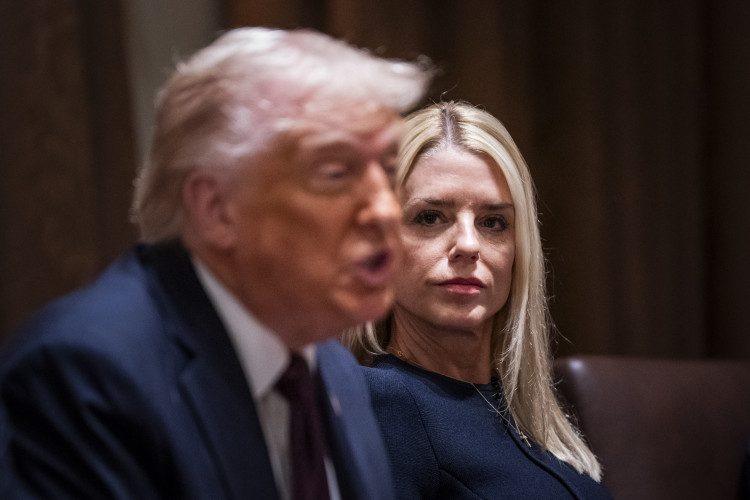Internet Law
AG Bondi cited this justification for Trump’s power to ignore TikTok ban
President Donald Trump, flanked by U.S. Attorney General Pam Bondi, speaks during a Cabinet meeting at the White House in March. (Photo by Jabin Botsford/The Washington Post)
The U.S. Department of Justice is “irrevocably relinquishing” claims against technology companies that provided services to TikTok in violation of the law banning the Chinese-owned social media app, U.S. Attorney General Pam Bondi said in letters released to the New York Times under the Freedom of Information Act.
Bondi said President Donald Trump had determined that the law would interfere with his “constitutional duties to take care of the national security and foreign affairs of the United States,” and the law “is properly read” not to infringe such duties.
Legal experts told the New York Times that Trump is essentially claiming that he has constitutional power to immunize private parties to commit what would be illegal acts without legal jeopardy. That would constitute Trump’s “starkest power grab,” the newspaper said.
Other presidents have also declined to enforce laws, including former President Barack Obama, who deferred deportation of immigrants brought to the country illegally as children.
“But the Obama administration also said such ‘deferred action’ could be revoked and did not claim it made their presence lawful, nor cease to enforce immigration law against others,” the New York Times reported.
The promise to relinquish claims against the tech companies promised them immunity during future presidential administrations, the New York Times said.
“Recent past presidents have been aggressive in exercising law enforcement discretion,” Jack Goldsmith, a professor at Harvard Law School, told the New York Times. “But they haven’t suspended the operation of a law entirely or immunized its violation prospectively.”
In an interview with the New York Times, Alan Z. Rozenshtein, a professor at the University of Minnesota Law School, referred to the take care clause in Article II, which provides that presidents must take care that the laws be faithfully executed.
“There are other things that are more important than TikTok in today’s world,” Rozenshtein said. “But for pure refusal to enforce the law as Article II requires, it’s just breathtaking.”
The Protecting Americans from Foreign Adversary Controlled Applications Act bans TikTok if its Chinese-owned parent company ByteDance isn’t sold. The U.S. Supreme Court upheld the law Jan. 17.
See also:
Supreme Court will decide whether TikTok ban violates the First Amendment
Supreme Court upholds TikTok ban-or-sale law set to start Sunday
Supreme Court considers putting TikTok on the chopping block
Write a letter to the editor, share a story tip or update, or report an error.
